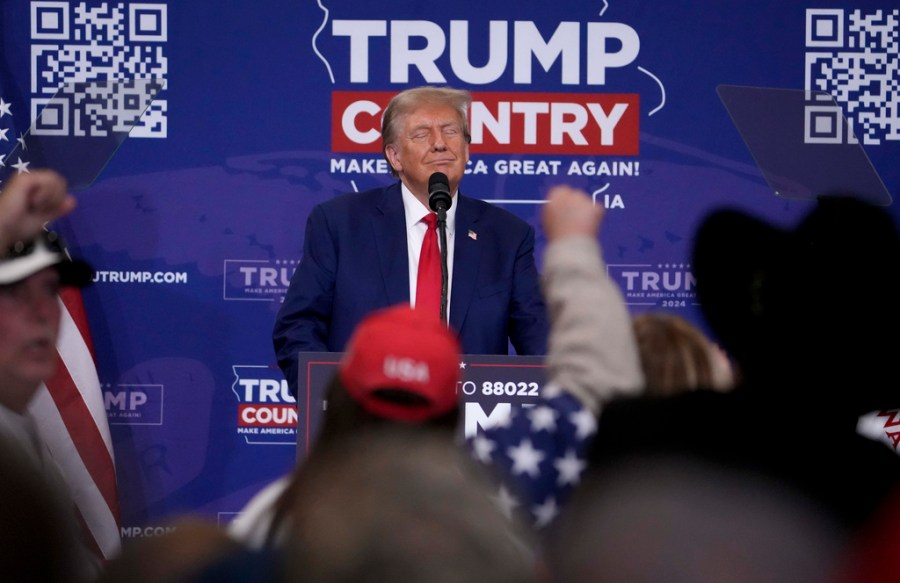
As the world reflects on Jimmy Carter’s legacy following his passing, parallels with President Joe Biden’s tenure come into sharp focus. Both Carter and Biden grappled with economic turbulence, declining approval ratings and contentious foreign policy moments. Carter’s leadership during the Camp David Accords and Biden’s rebuilding of transatlantic alliances after the Trump era underscore their shared commitment to diplomacy. Yet both presidencies were marred by inflation and foreign crises: Carter’s inability to resolve the Iranian hostage situation and for Biden, Afghanistan and Gaza.
These challenges, along with each president’s perceived lack of commanding authority, led to a loss in public confidence.
While Carter and Biden prioritized multilateralism and diplomatic cooperation, Donald Trump’s reelection signals a stark departure from this approach. His second term, beginning Jan. 20, emphasizes unilateralism, expansionism and a revival of U.S. primacy in the Western Hemisphere. Trump’s rhetoric about reclaiming the Panama Canal, imposing tariffs on Canada and Mexico, and military posturing in Mexico evokes echoes of 19th-century Manifest Destiny — a doctrine that justified U.S. territorial expansion and sought to project American power across the Americas.
Trump’s threatened 25 percent tariffs on Canadian and Mexican goods reflect a shift from cooperative trade to punitive measures. In 2023, Canada and Mexico accounted for over $1.6 trillion in U.S. trade. For Canada, Trump’s provocations — such as calling Prime Minister Justin Trudeau “governor”— have reignited old fears, weakening Trudeau’s domestic position.
For Mexico, whose exports to the U.S. comprise over 80 percent of its trade, tariffs would destabilize its economy and exacerbate migration pressures. These measures, framed as part of Trump’s “America First” agenda, signal a break from traditional partnerships in North America.
Trump’s rhetoric about the Panama Canal highlights his broader ambitions for reasserting control over strategic infrastructure. Accusing Panama of “price-gouging,” he has floated abandoning the 1977 treaty that returned control of the canal. Trump frames the canal as vital to U.S. security, pointing to Chinese influence as a justification for reclaiming control. China, whose Belt and Road Initiative has significantly expanded its foothold in Latin America, is the second-largest user of the canal. Trump’s remarks, including memes of the U.S. flag flying over the canal, hint at a willingness to use intimidation to reassert U.S. dominance in the region.
Military posturing also plays a central role in Trump’s strategy. Proposals for a “soft invasion” of Mexico to combat drug cartels, involving drone strikes or special forces, have drawn sharp rebukes from Mexican President Claudia Sheinbaum, who dismissed them as “entirely a movie.” Despite this, Trump’s advisors continue to advocate for interventionist policies reminiscent of early 20th-century U.S. actions in Nicaragua and Cuba. These actions risk undermining Mexico’s sovereignty while further straining U.S.-Mexico relations.
Trump’s close alignment with Argentina’s President Javier Milei adds another layer to his hemispheric strategy. A potential U.S.-Argentina free trade agreement, requested by Milei, could give Argentina a competitive edge in exports like beef and soybeans, worth over $14 billion in 2023.
This would threaten Chile’s position as a key U.S. trade partner, which totaled $27 billion in 2023. Meanwhile, Chile’s reliance on China — its largest trading partner with $65 billion in bilateral trade — would likely deepen if Argentina gains preferential access to U.S. markets. This shift illustrates how Trump’s strategy, centered on ideological alignment rather than multilateral cooperation, risks disrupting regional stability.
Argentina’s alignment contrasts sharply with left-leaning governments in Brazil, Colombia and Chile. Trump is likely to view these nations as adversaries, resorting to punitive measures to bring them in line. Argentina, poised to replace Colombia as the U.S.’s closest ally in South America, could see its ambitions bolstered under Trump’s support. However, this risks stoking tensions with neighboring countries, which may view Argentina’s rising influence as destabilizing. Milei’s ambitious economic reforms further complicate the picture, as their failure could leave Trump without a reliable partner in the region.
Trump’s return marks a clear break from the multilateralism championed by his predecessors. While Biden sought to strengthen alliances and address global challenges collaboratively, Trump’s vision prioritizes unilateral actions to project power and reassert primacy. Yet, the challenges facing the region and the world demand a level of realism that appears absent from today’s foreign policy discourse. Addressing these issues artfully and with pragmatic understanding of regional dynamics will be critical to advance U.S. influence.
Ultimately, Trump’s strategy conflates his “America First” philosophy with a revival of U.S. imperialism. By prioritizing control over cooperation, Trump’s actions mark a return to an era of dominance asserted through economic coercion and military threats. Whether this approach strengthens U.S. influence or drives the hemisphere closer to competitors remains uncertain. What is clear is that Trump views reasserting control over the Americas as central to his vision of U.S. leadership in an increasingly multipolar world.
Carl Meacham, former senior Republican staff member for the Western Hemisphere on the U.S. Senate Foreign Relations Committee, is an international consultant. Robert Funk, former president of the Political Science Association of Chile, is associate professor of political science at the University of Chile.












